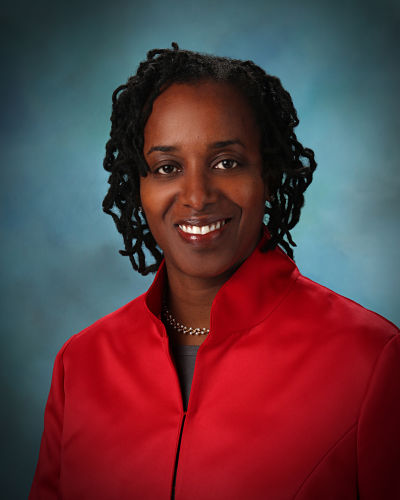Richmond, CA is a small, previously unknown, town with just over 100,000 residents on the coast of the San Pablo Bay. That changed in 2014 when Chevron contributed over $3 million to win legislative seats in Richmond -- and failed.
Chevron, one of the biggest oil corporations in the world, has a refinery based in town. On August 6, 2012, an explosion at the refinery rocked the small city, sending over 15,000 of its residents to nearby hospitals and starting a community movement to take back Richmond from the corporate giant. The community rallied, and in the 2014 elections gained positions over the Chevron candidates. We had the opportunity to talk to one of these successful candidates, Jovanka Beckles -- now a city council member -- about her experience with Chevron in Richmond, the difficulties her community faces, and above all, how she and her town defeated Big Oil.
Q: Can you please give the readers an idea of what the Richmond community is like? What is its relationship with Chevron?
Richmond is a diverse community. We have large populations of Latinos and African-Americans and smaller populations of Asians and Caucasians. It is primarily a working-class city with a relatively large number of unemployed, disenfranchised residents. More recently, we have seen a lot of improvement in the lives of our citizens. We protect our undocumented workers. Our crime levels have decreased substantially.
As far as Chevron goes, until recently Chevron dominated our economy and politics, doling out favors to residents at its leisure. Most people, with the encouragement of Chevron, had bought into the idea that Chevron was good to, and for, the community. Finally, that understanding is changing.
Q: What kind of effect does being so close to the Chevron Refinery have on your community and the health of the people that live there?
We have known for years that the refinery emissions are a real threat to our health. We can see environmental racism at work in Richmond. [Environmental racism refers to the idea that dangerous and harmful practices by companies are oftentimes committed in minority neighborhoods.] The asthma rates in children living downwind from the refinery, who are mostly children of color, are much higher than in other communities. Yet Chevron has consistently put their profits before our health. They couldn’t get away with it if they were polluting a middle-class community.
Q: Can you talk about the Chevron Refinery Fire and the days that followed, and how you think that affected your community’s relationship with Chevron?
The fire was a real wake-up call and made us all aware of the potential dangers we face every day being next to the Chevron refinery. We know that it could have been much worse. But at the same time it woke many of the people who had believed the corporate hype about how good Chevron is for our community, showing them what we had been saying all along—the Chevron refinery was and is a threat to our welfare. If Chevron wants to really help the Richmond community it will do everything in its power to make its operations as safe as possible.
Q: In 2014, despite the fact that Chevron contributed over $3 million to get their candidates elected, members of the Richmond community succeeded in beating out these candidates and electing community members that were not backed by the corporation, you being one of them. Can you tell us what it was like being a part of such an incredible success story and how you think it impacted Richmond?
It is an incredible feeling to have beaten the Chevron candidates. Hundreds of people worked hard for months to mobilize and use our collective strength as a powerful tool that money could not buy! I'm so very proud of Richmond voters. It shows that when a community is paying attention, no amount of misinformation and outright lies will prevail, no matter how many times it’s stated throughout the city on billboards, internet ads, and all the outlets that money can buy. It shows that a united, informed community is powerful!
Q: What do you think makes your community different? Why were you successful in challenging the big money of Chevron?
I think what makes our community different is that a group of dedicated, progressive individuals who oppose corporate control has worked incredibly hard for the last ten years to bring progressive change to Richmond. At the same time, dedicated environmentalists organized to stand up against Chevron, uniting our causes.
Q: Moving forward, what would you like to see Chevron do to prevent fires like the one in 2012 from happening again? What would you like them to do to reduce the health concerns for everyone in the Richmond community? Do you have a strategy in mind to get these plans going?
There are a number of steps that can be initiated to reduce the likelihood of fires and make the refinery safer for the community. These include having more oversight of production, using “best available control technology,” BACT, to run the refinery, putting in place severe penalties for failure to reduce emissions and unsafe operations, and making the unions stronger, including giving workers the right to shut down dangerous operations.
Q: What would you hope other communities fighting similar battles can learn from Richmond?
I would like other communities to be inspired, motivated, and have the confidence to know that it is possible to beat what seems like insurmountable odds. We have learned a lot about how to run a ground campaign, how to fight back. I think we learned how to balance attacking Chevron and putting our positive vision forward. We’d be happy to talk with anyone who is thinking about mounting a people’s campaign.
